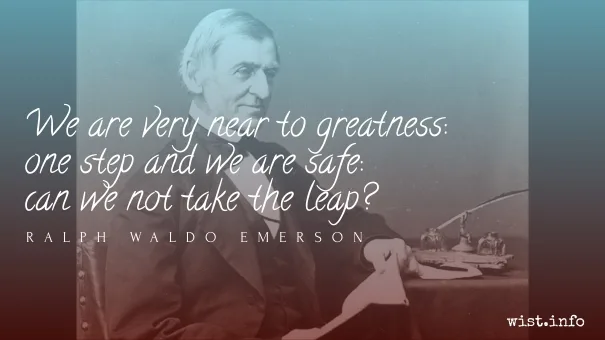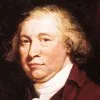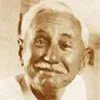I conceive that there is nothing which gives a man more pause before taking as absolute what his feelings welcome, and his mind deems plausible, than even the flicker of recollection that something of the sort has been tried before, felt before, disputed before, and for some reason or other has now quite gone into Limbo.
Learned Hand (1872-1961) American jurist
“Sources of Tolerance,” speech, University of Pennsylvania Law School (1930-06)
(Source)
Quotations about:
hesitation
Note not all quotations have been tagged, so Search may find additional quotes on this topic.
As one who wills, and then unwills his will,
Changing his mind with every changing whim,
Till all his best intentions come to nil,
So I stood havering in that moorland dim,
While through fond rifts of fancy oozed away
The first quick zest that filled me to the brim.[E qual è quei che disvuol ciò che volle
e per novi pensier cangia proposta,
sì che dal cominciar tutto si tolle,
tal mi fec’ïo ’n quella oscura costa,
perché, pensando, consumai la ’mpresa
che fu nel cominciar cotanto tosta.]Dante Alighieri (1265-1321) Italian poet
The Divine Comedy [Divina Commedia], Book 1 “Inferno,” Canto 2, l. 37ff (2.37-42) (1309) [tr. Sayers (1949)]
(Source)
(Source (Italian)). Alternate translations:As he who what he first resolv'd rejects,
And by some fresher reasons is induc'd
Wholly to lay aside his first intent;
So I, now in the mountain's shade arriv'd,
Refus'd th' attempt which I at first desir'd.
[tr. Rogers (1782), ll. 34-38]Like one, who, some imagin'd peril near,
Feels his warm wishes chill'd by wint'ry fear,
And resolution sicken at the view,
Thus I perceiv'd my sinking spirits fail,
Thus trembling, I survey'd the gloomy vale,
As near the moment of decision drew.
[tr. Boyd (1802), st. 8]As one, who unresolves
What he hath late resolv'd, and with new thoughts
Changes his purpose, from his first intent
Remov'd; e'en such was I on that dun coast,
Wasting in thought my enterprise, at first
So eagerly embrac'd.
[tr. Cary (1814)]As one that what he wished unwisheth now,
And, changing purpose in a newer drift.
Doth his first motion wholly disallow;
So wrought I then beneath that gloomy cliff,
Who, meditating, quenched the venturous hope
That in her first beginning rose so swift.
[tr. Dayman (1843)]And as one who unwills what he willed, and with new thoughts changes his purpose, so that he wholly quits the thing he commenced,
such I made myself on that dim coast: for with thinking I wasted the enterprise, that had been so quick in its commencement.
[tr. Carlyle (1849)]Like one unwilling for the thing he wills,
Whose second thoughts have made his purpose pale,
And everything upon the threshold fail;
So did I with myself obscure that coast
With thinking much -- the enterprise gave o'er
With vehemence I had embraced before.
[tr. Bannerman (1850)]And as with him unwishing what he wish'd,
Who changes purpose as new thoughts arise,
So that his first intentions pass away;
It was with me when on that coast obscure;
For as thought grew, the enterprise was lost,
Which at the first so quickly I desir'd.
[tr. Johnston (1867)]And as he is, who unwills what he willed,
And by new thoughts doth his intention change,
So that from his design he quite withdraws,
Such I became, upon that dark hillside,
Because, in thinking, I consumed the emprise,
Which was so very prompt in the beginning.
[tr. Longfellow (1867)]And as is he who ceases to will that he willed, and by reason of new thoughts changes purpose, so that he withdraws himself wholly from his beginning, so became I on that dark hillside; so that in my thought I made an end of the enterprise which in its commencement had been so hasty.
[tr. Butler (1885)]Like unto one who wills not that he would,
And shifts his purpose with thought's changing tide,
So that he dare not make commencement good,
Thus acted I on that hill's darkened side;
In idle thought I wasted the emprise.
To which so swiftly I first had hied.
[tr. Minchin (1885)]And as is he who unwills what he willed, and because of new thoughts changes his design, so that he quite withdraws from beginning, such I became on that dark hillside: wherefore in my thought I abandoned the enterprise which had been so hasty in the beginning.
[tr. Norton (1892)]And as one who wisheth not that which he wished, and for new fancies changeth his resolve, so that he turns him wholly from his undertaking; even in such state was I on that dark slope; for, while I pondered, I brought to naught the enterprise, that was at first so readily embraced.
[tr. Sullivan (1893)]And as one is who what he wished unwishes,
And for new thoughts exchanges his set purpose,
So that he quite departs from his beginnings,
Such I became upon that gloomy hillside;
Because in thought the enterprise I wasted
Which had at the beginning been so eager.
[tr. Griffith (1908)]And as one who unwills what he willed and with new thoughts changes his purpose so that he quite withdraws from what he has begun, such I became on that dark slope; for by thinking of it I brought to naught the enterprise that was so hasty in its beginning.
[tr. Sinclair (1939)]And like one who unwills what he willed first
And new thoughts change the intention that he had,
So that his resolution is reversed,
So on that dim slope did my purpose fade
For I with thinking had dulled down the zest
That at the outset sprang so prompt and glad.
[tr. Binyon (1943)]As one who unwills what he wills, will stay
strong purposes with feeble second thoughts
until he spells all his first zeal away --
so I hung back and balked on that dim coast
till thinking had worn out my enterprise,
so stout at starting and so early lost.
[tr. Ciardi (1954)]And like one who unwills what he has willed and with new thoughts changes his resolve, so that he quite gives up the thing he had begun, such did I become on that dark slope, for by thinking on it I rendered null the undertaking that had been so suddenly embarked upon.
[tr. Singleton (1970)]As one who unwills what he willed, will change
his purposes with some new second thought,
completely quitting what he first had started,
so I did, standing there on that dark slope,
thinking, ending the beginning of that venture
I was so quick to take up at the start.
[tr. Musa (1971)]And just as he who unwills what he wills
and shifts what he intends to seek new ends
so that he's drawn from what he had begun,
so was I in the midst of that dark land,
because, with all my thinking, I annulled
the task I had so quickly undertaken.
[tr. Mandelbaum (1980)]And just like somebody who shilly-shallies,
And thinks again about what he has decided,
So that he gives up everything he has started,
I found I was on that obscure hillside:
By thinking about it I spoiled the undertaking
I had been so quick to enter in the first place.
[tr. Sisson (1981)]And then, like one who unchooses his own choice
And thinking again undoes what he has started,
So I became: a nullifying unease
Overcame my soul on that dark slope and voided
The undertaking I had so quickly embraced.
[tr. Pinsky (1994), ll. 31-35]And like one who unwills what he just now willed and with new thoughts changes his intent, so that he draws back entirely from beginning:
so did I become on that dark slope, for, thinking, I gave up the undertaking that I had been so quick to begin.
[tr. Durling (1996)]And I rendered myself, on that dark shore, like one who un-wishes what he wished, and changes his purpose, in new thinking, so that he leaves off what he began, completely, since in thought I consumed action, that had been so ready to begin.
[tr. Kline (2002)]As one who unwills what he willed,
and eyes another half-baked project,
so I bore away from my initial enterprise
and shilly-shallied on that twilit shore,
while dim thoughts flitted through my cranium
obscuring what I'd once been eager for.
[tr. Carson (2002)]And so -- as though unwanting every want,
so altering all at every altering thought
now drawing back from everything begun --
I stood there on the darkened slope, fretting
away from thought to thought the bold intent
that seemed so very urgent at the outset.
[tr. Kirkpatrick (2006)]And as one who unwills what he has willed,
changing his intent on second thought
so that he quite gives over what he has begun,
such a man was I on that dark slope.
With too much thinking I had undone
the enterprise so quick in its inception.
[tr. Hollander/Hollander (2007)]Like someone half regretting what once seemed knowledge,
intention shifted around by fresh ideas,
Starting to throw all old ones overboard,
I stood on that dark slope, pulled by feelings
So murky they dissipated whatever I'd thought
I knew, surrendering what once seemed real.
[tr. Raffel (2010)]Just so, obeying the unwritten rule
That one who would unsieh that which he wished,
Having thought twice about what he first sought,
Must put fish back into the pool he fished,
So they, set free, may once again be caught,
Just so did I in that now shadowy fold --
Because, by thinking, I'd consumed the thought
I started with, that I had thought so bold.
[tr. James (2013)]
You must make up your mind to act decidedly and take the consequences. No good is ever done in this world by hesitation.
T. H. Huxley (1825-1895) English biologist [Thomas Henry Huxley]
Letter to Anton Dohrn (1873-10-17)
(Source)
Every day of our lives we are on the verge of making those changes that would make all the difference.
Mignon McLaughlin (1913-1983) American journalist and author
The Neurotic’s Notebook, ch. 4 (1963)
(Source)
WATCHMAN:
Sir, I am here. I can’t say I am out of breath.
I have not exactly been “running on light feet.”
I halted many times along the road so I could think,
And I almost turned around and marched right back.
My mind kept talking to me. It said, “You poor guy,
Why are you going there? You’ll just get your ass kicked.”
Then it said, “Are you stopping again, you damn fool?
If Creon hears this from another man, he’ll give you hell.”
Well, I turned this idea up and down like that,
And I hurried along, real slow. Made a short trip long.[Φύλαξ:
ἄναξ, ἐρῶ μὲν οὐχ ὅπως τάχους ὕπο
δύσπνους ἱκάνω κοῦφον ἐξάρας πόδα.
πολλὰς γὰρ ἔσχον φροντίδων ἐπιστάσεις,
ὁδοῖς κυκλῶν ἐμαυτὸν εἰς ἀναστροφήν:
ψυχὴ γὰρ ηὔδα πολλά μοι μυθουμένη:
τάλας, τί χωρεῖς οἷ μολὼν δώσεις δίκην;
τλήμων, μενεῖς αὖ; κεἰ τάδ᾽ εἴσεται Κρέων
ἄλλου παρ᾽ ἀνδρός; πῶς σὺ δῆτ᾽ οὐκ ἀλγύνει;
τοιαῦθ᾽ ἑλίσσων ἤνυτον σχολῇ βραδύς.]Sophocles (496-406 BC) Greek tragic playwright
Antigone, l. 223ff (441 BC) [tr. Woodruff (2001)]
(Source)
Original Greek. Alternate translations:SENTINEL:
My liege, I cannot say that from very haste I come panting for breath, having stept out with nimble paces. Troth: I have had many half-way houses of cogitation, wheeling about after every fresh start as though I would return. In fact, my soul often addressed me with some such tale as this: Why goest, simpleton, where to be come is to be punished?" then again: "What! wilt not away, poor wretch? and if Kreon shall learn these tidings from some one else, how then wilt thou escape the penalty?" While thus my mind revolved, the speed I made was tardy in its swiftness: and so a short road is made long.
[tr. Donaldson (1848)]GUARD:
My lord, I will not make pretense to pant
And puff as some light-footed messenger.
In sooth my soul beneath its pack of thought
Made many a halt and turned and turned again;
For conscience plied her spur and curb by turns.
"Why hurry headlong to thy fate, poor fool?"
She whispered. Then again, "If Creon learn
This from another, thou wilt rue it worse."
Thus leisurely I hastened on my road;
Much thought extends a furlong to a league.
[tr. Storr (1859)]WATCHMAN:
My lord, I am out of breath, but not with speed.
I will not say my foot was fleet. My thoughts
Cried halt unto me ever as I came
And wheeled me to return. My mind discoursed
Most volubly within my breast, and said--
Fond wretch! why go where thou wilt find thy bane?
Unhappy wight! say, wilt thou bide aloof?
Then if the king shall hear this from another,
How shalt thou 'scape for 't? Winding thus about
I hasted, but I could not speed, and so
Made a long journey of a little way.
[tr. Campbell (1873)]GUARD:
My king, I will not say that I arrive breathless because of speed, or from the action of a swift foot. For often I brought myself to a stop because of my thoughts, and wheeled round in my path to return. My mind was telling me many things: “Fool, why do you go to where your arrival will mean your punishment?” “Idiot, are you dallying again? If Creon learns it from another, must you not suffer for it?” So debating, I made my way unhurriedly, slow, and thus a short road was made long.
[tr. Jebb (1891)]MESSENGER:
O King, I cannot boast that, hither sent,
I came with speed, for oft my troubled thoughts
Have driven me back; oft to myself I said,
Why dost thou seek destruction?
With doubts like these oppressed, slowly I came,
And the short way seemed like a tedious journey.
[tr. Werner (1892)]GUARD:
My liege, I will not say that I come breathless from speed, or that I have plied a nimble foot; for often did my thoughts make me pause, and wheel round in my path, to return. My mind was holding large discourse with me; "Fool, why goest thou to thy certain doom?" "Wretch, tarrying again? And if Creon hears this from another, must not thou smart for it?" So debating, I went on my way with lagging steps, and thus a short road was made long.
[tr. Jebb (1917)]SENTRY:
I'll not say that I'm out of breath from running, King, because every time I stopped to think about what I have to tell you, I felt like going back. And all the time a voice kept saying, "You fool, don't you know you're walking straight into trouble?"; and then another voice: "Yes, but if you let somebody else get the news to Creon first, it will be even worse than that for you!"
[tr. Fitts/Fitzgerald (1939)]SENTRY:
My lord: if I am out of breath, it is not from haste.
I have not been running. On the contrary, many a time
I stopped to think and loitered on the way,
Saying to myself “Why hurry to your doom,
Poor fool?” and then I said, “Hurry, you fool.
If Creon hears this from another man,
Your head’s as good as off.” So here I am,
As quick as my unwilling haste could bring me;
In no great hurry, in fact.
[tr. Watling (1947), l. 183ff]GUARD:
Lord, I can't claim that I am out of breath
from rushing here with light and hasty step,
for I had many haltings in my thought
making me double back upon my road.
My mind kept saying many things to me:
"Why go where you will surely pay the price?"
"Fool, are you halting? And if Creon learns
from someone else, how shall you not be hurt?"
Turning this over, on I dilly-dallied.
And so a short trip turns itself to long.
[tr. Wyckoff (1954)]GUARD:
My lord: I cannot say that I am come
All out of breath with running. More than once
I stopped and thought and turned round in my path
And started to go back. My mind had much
To say to me. One time it said "You fool!
Why do you go to certain punishment?"
Another time "What? Standing still, you wretch?
You'll smart for it, if Creon comes to hear
From someone else." And so I went along
Debating with myself, not swift nor sure.
This way, a short road soon becomes a long one.
[tr. Kitto (1962)]SENTRY:
My lord,
I can't say I'm winded from running, or set out
with any spring in my legs either -- no sir,
I was lost in thought, and it made me stop, often,
dead in my tracks, wheeling, turning back,
and all the time a voice inside me muttering,
"Idiot, why? You're going straight to your death."
Then muttering, "Stopped again, poor fool?
If somebody gets the news to Creon first,
what's to save your neck?" And so,
mulling it over, on I trudged, dragging my feet,
you can make a short road take forever ...
[tr. Fagles (1982), l. 248ff]WATCHMAN:
Lord, I cannot say that I arrive breathless
from quickly lifting nimble feet.
In fact, I stopped many times to think,
whirling around on the roads to turn back.
My spirit kept talking to me and saying:
“Poor fool, why are you going to a place where
you will pay the penalty when you arrive? Wretch, are you
dawdling along again? If Creon learns about this
from someone else, how then will you not feel pain?”
As I rolled around such thoughts, I was gradually and
slowly completing the journey, and so a short road
became a long one.
[tr. Tyrell/Bennett (2002)]GUARD: My King, I can’t really say that I’ve lost my breath by running my feet to the ground so as to get here as quickly as I could! No, I tarried. God knows I’ve stopped myself often enough, on the way here and I’ve almost turned back many times.
My soul, you see, was talking to me all the while and all the while it kept changing its mind: “poor man,” it would say one minute, “Why are you rushing to your suffering?” Or again, “Stupid man,” it would say, “why are you hanging about like this? What if the king hears it from someone else? What a mess you’d get yourself into then!”
Stuff like that was spinning about in my head and it made this small road so much longer!
[tr. Theodoridis (2004)]GUARD:
My lord, I can’t say I’ve come out of breath
by running here, making my feet move fast.
Many times I stopped to think things over --
and then I’d turn around, retrace my steps.
My mind was saying many things to me,
“You fool, why go to where you know for sure
your punishment awaits?” -- “And now, poor man,
why are you hesitating yet again?
If Creon finds this out from someone else,
how will you escape being hurt?” Such matters
kept my mind preoccupied. And so I went,
slowly and reluctantly, and thus made
a short road turn into a lengthy one.
[tr. Johnston (2005), l. 256ff]GUARD:
My lord, I will not say that I come breathless
from rushing or quickly moving my feet,
for often my thoughts stopped me in my place,
and I'd wheel around on the road back where I came.
My heart kept talking to me, telling me,
"Poor fool, why are you going where you're sure
to be punished?" "Idiot, you stopping
again? If Creon hears it from someone else,
then you'll really pay for it!" Twisting like this
I made my way, the opposite of hate,
and thus a short road became a long one.
[tr. Thomas (2005), l. 226ff]
Experience makes more timid men than it duz wise ones.
[Experience makes more timid men than it does wise ones.]
Josh Billings (1818-1885) American humorist, aphorist [pseud. of Henry Wheeler Shaw]
Everybody’s Friend, Or; Josh Billing’s Encyclopedia and Proverbial Philosophy of Wit and Humor, “Lobstir Sallad” (1874)
(Source)
Delay is itself a decision.
Theodore "Ted" Sorensen (1928-2010) American lawyer, writer, presidential adviser, speechwriter
Decision-Making in the White House: The Olive Branch or the Arrows, ch. 3 (1963)
(Source)
Full quote: "In the White House, the future rapidly becomes the past, and delay is itself a decision." Earlier in the chapter, he writes, "Some will counsel speed; others will counsel delay -- yet even delay will constitute a decision."
These things are good in little measure and evil in large; yeast, salt, and hesitation.
The Talmud (AD 200-500) Collection of Jewish rabbinical writings
Babylonian Talmud, Berakoth 34a
Alt. trans.: "Our Rabbis taught: If one is asked to pass before the Ark, he ought to refuse, and if he does not refuse he resembles a dish without salt; but if he persists too much in refusing he resembles a dish which is over-salted. How should he act? The first time he should refuse; the second time he should hesitate; the third time he should stretch out his legs and go down. Our Rabbis taught: There are three things of which one may easily have too much while a little is good, namely, yeast, salt, and refusal."
Alt. trans.: "There are three things that are harmful in excess but are beneficial when used sparingly. They are: Leavening in dough, salt in a cooked dish and refusal for the sake of propriety." [William Davidson Talmud]
Alt. trans.: "There are three things of which you may easily have too much, while a little is good: yeast, salt, and hesitation." [Joshua of the South, Berakot 5.3]
Alt trans.: "Three things are disagreeable when used in excess, and pleasant when moderately indulged in: yeast, salt, and hesitancy in accepting proffered honours." [Paul Isaac Hershon, The Pentateuch According to the Talmud: Genesis, Part 1, Genesis 19:26, Synoptical Notes: "Salt"]
But in our flowing affairs a decision must be made, — the best, if you can, but any is better than none. There are twenty ways of going to a point, and one is the shortest; but set out at once on one. A man who has that presence of mind which can bring to him on the instant all he knows, is worth for action a dozen men who know as much but can only bring it to light slowly.
Ralph Waldo Emerson (1803-1882) American essayist, lecturer, poet
Essay (1860), “Power,” The Conduct of Life, ch. 2
(Source)
Based on a course of lectures by that name first delivered in Pittsburg (1851-03).
HAMLET: Thus conscience does make cowards of us all,
And thus the native hue of resolution
Is sicklied o’er with the pale cast of thought,
And enterprises of great pitch and moment
With this regard their currents turn awry
And lose the name of action.William Shakespeare (1564-1616) English dramatist and poet
Hamlet, Act 3, sc. 1, l. 91ff (3.1.91-96) (c. 1600)
(Source)
"Conscience" in this case is used in its archaic form, as consciousness, awareness.
Hampden, on the other hand, was for vigorous and decisive measures. When he drew the sword, as Clarendon has well aid, he threw away the scabbard. He had shown that he knew better than any public man of his time how to value and how to practice moderation. He knew that the essence of war is violence, and that moderation in war is imbecility.
Thomas Babington Macaulay (1800-1859) English writer and politician
“John Hampden,” Essays Contributed to the Edinburgh Review, Vol. 1 (1843)
(Source)
Review of Lord Nugent, Some Memorials of John Hampden, His Party, and His Times (1831).
There is no greater mistake than to try to leap an abyss in two jumps.
David Lloyd George (1863-1945) Welsh politician, statesman, UK Prime Minister (1916-22)
War Memoirs of David Lloyd George, Vol. 2, ch. 24 (1933)
Not original with Lloyd George, but usually attributed to him. For more information, see here. Variants:
- "Don’t be afraid to take a big step. You can’t cross a chasm in two small jumps."
- "The most dangerous thing in the world is to leap a chasm in two jumps."
- "Anything can be achieved in small, deliberate steps. But there are times you need the courage to take a great leap; you can't cross a chasm in two small jumps."
- "There is nothing more dangerous than to leap a chasm in two jumps."




















